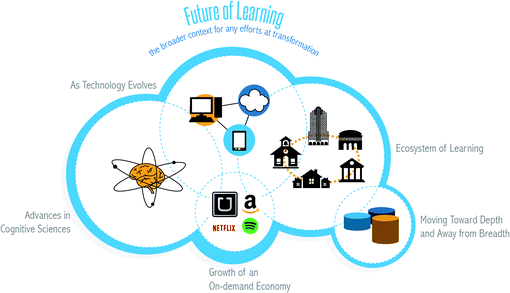
College education is often seen as a pivotal stage in a person’s life, providing the foundation for both professional success and personal development. It offers students an opportunity to deepen their knowledge, refine their skills, and explore various fields of study that align with their future career aspirations. In this article, we will explore the significance of a college education, the benefits it provides, and how it shapes students for the future.
What is College Education?
College education refers to the formal learning and training that students undergo after completing their high school education. It typically occurs at institutions of higher learning such as universities, colleges, and technical schools, and leads to the attainment of academic degrees such as associate’s, bachelor’s, master’s, or doctoral degrees. College education offers students a more specialized and in-depth understanding of particular fields of study, whether it be in the sciences, humanities, arts, business, technology, or other disciplines.
In addition to academic knowledge, college education plays a crucial role in the development of essential life skills, such as critical thinking, communication, problem-solving, and time management. Students are also exposed to new ideas, diverse cultures, and various worldviews, which contribute to their personal and intellectual growth.
The Importance of College Education
1. Expanding Knowledge and Expertise
One of the primary reasons people attend college is to acquire specialized knowledge and expertise in their chosen fields. College courses are designed to provide students with a deep understanding of subjects that are essential for their career aspirations. Whether it’s a degree in engineering, business, medicine, education, or the arts, college education prepares students to meet the demands and expectations of various industries.
In college, students are exposed to advanced concepts and theories that go beyond what is taught in high school. Through lectures, research, projects, and practical experience, students develop a solid foundation in their areas of study, equipping them with the tools needed to succeed in their careers.
2. Improved Career Opportunities
A college degree opens the door to a wide range of career opportunities and increases a person’s earning potential. Numerous studies have shown that individuals with higher levels of education tend to earn more over the course of their careers than those with only a high school diploma.
In many industries, having a college degree is a minimum requirement for entry-level positions. Higher education also provides students with the credentials and qualifications needed for advancement within their chosen field. In addition to academic training, college programs often include internships, co-op placements, and career services that help students gain practical experience and network with potential employers.
3. Personal Development
College education is not just about academics; it is also an important time for personal growth and development. During their college years, students experience a significant amount of independence and are exposed to new ideas, people, and experiences. This helps them develop a better sense of self, refine their values, and build their confidence.
Moreover, college is a place where students learn essential life skills, such as communication, teamwork, and leadership. They also gain critical thinking and problem-solving skills that will serve them well in both their professional and personal lives. As students navigate the challenges of college life, they become more resilient and adaptable, learning how to manage their time, set goals, and handle stress.
4. Networking and Building Relationships
One of the key benefits of college education is the opportunity to network with professors, industry professionals, and fellow students. Building relationships with peers and mentors in college can open doors to valuable opportunities in the future. Networking can help students secure internships, job offers, and recommendations that are crucial for launching their careers.
Additionally, many colleges and universities have strong alumni networks, which can provide ongoing support and career guidance for graduates. Attending events, joining clubs and organizations, and participating in career fairs are all great ways to build connections while in college.
5. Exposure to Diverse Perspectives
College education offers students the opportunity to engage with individuals from diverse backgrounds and cultures. This diversity enriches the learning environment and helps students develop a broader understanding of the world around them.
Exposure to different perspectives encourages students to think critically and expand their worldview. It also promotes tolerance, empathy, and inclusivity, which are essential qualities in today’s globalized world. Students who attend college are better prepared to work in diverse environments and collaborate with individuals from various cultural and social backgrounds.
Types of College Education
1. Associate’s Degree
An associate’s degree is typically a two-year program offered by community colleges, technical schools, and some universities. It provides foundational knowledge in various fields of study, and it can serve as a stepping stone to a bachelor’s degree or entry into the workforce. Associate’s degrees are often awarded in fields such as business, healthcare, and technology.
2. Bachelor’s Degree
A bachelor’s degree is a four-year program offered by universities and colleges. It is the most common degree for students seeking to enter the workforce or continue their studies in graduate school. Bachelor’s degrees are available in a wide range of disciplines, from humanities and social sciences to engineering and medical fields.
3. Master’s Degree
A master’s degree is a graduate-level degree that typically requires one to two years of study beyond the bachelor’s degree. This advanced degree provides specialized knowledge in a particular field, and it can open up opportunities for leadership positions, higher salaries, and further academic study. Master’s programs are offered in areas such as business (MBA), education, law, and healthcare.
4. Doctoral Degree
A doctoral degree, such as a Ph.D., is the highest level of education and often requires several years of study, including original research and the completion of a dissertation. Doctoral programs are highly specialized and prepare students for careers in academia, research, or high-level professional fields.
Challenges of College Education
While college education provides numerous benefits, it also comes with its own set of challenges. Some of the most common challenges faced by college students include:
- Cost of Education: Tuition fees, textbooks, housing, and other expenses can make college education expensive, leading many students to take out loans or work part-time jobs to cover the costs.
- Balancing Academics and Personal Life: College students often struggle to balance their academic responsibilities with their personal lives, including part-time work, social activities, and self-care.
- Stress and Mental Health Issues: The pressures of academic performance, financial stress, and the transition to independence can lead to anxiety, depression, and other mental health challenges.
- Choosing the Right Major: Deciding on a major can be difficult, and some students may feel uncertain about their career path during their time in college.
Conclusion
A college education is a powerful tool that helps individuals develop academically, personally, and professionally. It provides the knowledge and skills needed to succeed in a competitive job market and fosters personal growth, resilience, and critical thinking. Despite the challenges it may present, the benefits of obtaining a college degree far outweigh the obstacles. College education opens up a world of opportunities and empowers students to pursue their dreams and make a positive impact on society.



